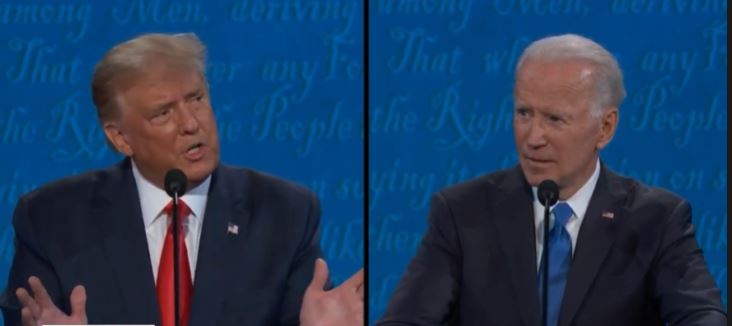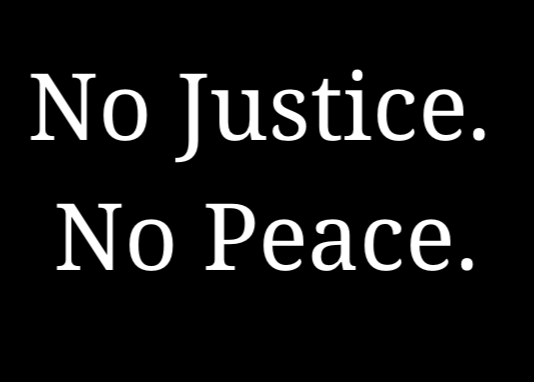 “I love argument, I love debate. I don’t expect anyone just to sit there and agree with me, that’s not their job.”
“I love argument, I love debate. I don’t expect anyone just to sit there and agree with me, that’s not their job.”
Those were the words of former British Prime Minister Margaret Thatcher.
But to a lot of youth today, that quote seems dangerous, absurd and absolutely insane.
College students have no problem talking about sports, trends, celebrities, inconsequentialities and how much we hate that boring class.
But tweak the topic of discussion toward religion, politics, abortion, sexuality or issues of relevance to the world and watch college students disperse.
So why is this the case? Why have most college students in America decided to surrender the ancient art of questioning important issues for keeping a sealed lip?
Well, if you ask me, I would say it’s a combination of the following backward ideologies:
It’s offensive to challenge the views of others. Youths have now re-defined political correctness as the absence of debate.
Common thought on campuses is that the fastest way to make enemies is to question the beliefs of others. To them, arguments are the plague that should be avoided.
College students think it’s cool to be ignorant. Where is Darfur? Isn’t Obama’s health care plan to kill Grandma? Is Sri Lanka in Africa? Aren’t all Muslims terrorists? These questions are not novel on a college campus.
Truth be told, some students just don’t know and don’t want to know. Whose fault? Blame students’ addiction to ESPN, People magazine and Perez Hilton.com. College students would rather read about Khloe Kardashian and Lamar Odom’s new tattoos than the deadliest bombing yet in Iraq.
Fear of being wrong. A lot of people are scared of rethinking their ideologies because they fear that what they have known to be right might actually be wrong.
To offset such fears, a lot of youth would rather not engage people or be engaged with opposing thoughts.
Or some seek people, TV shows and political dailies that mirror their opinions and are deaf to anything contrary. Pathetic.
College students back out from debating for these and so many other reasons.
There shouldn’t be an excuse for the slumber of a whole generation. Yes, that’s what I call it — a dangerous slumber that threatens the future.
As long as debates and arguments are carried out in a civil manner, then there is nothing wrong in being challenged or challenging the views of others.
In doing so, we learn both to appreciate diversity of opinions and also expand our knowledge horizon.
To shy away from debates because of ignorance is costly. Youths owe it to themselves— it is a necessity in the globalizing world we live in where unrest in Angola can lead to reduced oil production, which in turn leads to a rise in gas prices in the U.S.
Also, the fear of being wrong is not a plausible reason for not letting your voice be heard. So what if you are wrong? You do yourself and the world a greater favor by expressing your ignorance and correcting them than bottling up your ignorance.
From Mahatma Gandhi to Nelson Mandela, we realize that to change the world we see, we must first be willing to engage it. So when we act, we have a well thought out rationale to back it up.
No one is an island, and reaching out to understand why the next person thinks in a certain way might be the much needed step to understand why you are at fault or a reaffirmation of your beliefs. Either way, you learn something new.
Food For Thought: If youths are the leaders of tomorrow, then we need to pick ourselves up by the bootstraps today. We need to reinvigorate the art of debate or else risk a future saddled with docility, inaction and ignorance.









History Alum • Oct 29, 2009 at 9:18 am
An pretty good article and I agree with most parts of it. However, I caution that the idea of people are not interested in debate can be manipulated into a tactic to disparage people who do may not agree with your debate positions. Another aspect of society that kills debate, especially in universities, is political correctness. Why express a valid, thought-provoking position in a debate if you are going to subject yourself to being called racist/sexist/homophobic/hater by someone who has been indoctrinated. Such charges are way overused and more often used as tools to stop debate and demonize rather than truly describe a position.
It starts in the classroom, students need to quit having knowledge passively installed in their heads and they need to sometimes challenge what is stated by the professor, especially, if the material is presented in a subjective manner. Quit automatically accepting such positions and challenge them in a respectful way and have a debate. It is not a matter of winning or losing, it is a matter of developing your thought process. I guarantee you will learn more than by simply sitting their taking notes and regurgitating your way to an A.
Ryan • Oct 28, 2009 at 12:40 am
Although I agree that widespread debate on issues that should ‘matter’ is largely absent from college campuses–or at least Marquette–a statement like “College students think it’s cool to be ignorant” is the same type of sweeping generalization that “All Muslims are terrorists”. Although the message is (quite) different, the amount of thought put into both statements is the same.
While there is blame to accept on the part of the collected ‘we’ of college students, it is important that much evidence points to the contrary of this article. 2008 saw some of the largest youth voter turnouts in history. Although not ‘hard news’ The Daily Show and The Colbert Report, both of which do tackle these issues that ‘matter’, draw most of their large audiences from college-aged adults.
It is important to realize that some of the lack of interest in some of the world’s most important issues is larger in focus than just college-aged students. Much of the world gives nothing but apathy to the situation in Darfur. Why? I would go as far as to say that the politicizing of real-world issues along with the agendas of 24-hour news networks are to blame. Politicians constantly look to make complex issues into soundbites. An example of this was mentioned in the article: “Isn’t Obama’s health care plan to kill Grandma?”. This statement wasn’t created by college students, it was derived from the politicization of health care reform. As far as the agendas of the 24-hour news networks, I do not jut mean the political agendas, but the constant ratings battle between the networks. Shocking people gets ratings, sit down and watch Fox News for an hour and count how many times they designate a story “FOX NEWS ALERT”, a category originally created after 9/11 in the event of another event as important. So does talking about ‘popular’ stories that have very little impact, for this see CNN Headline News (now HLN) covering the Casey Anthony story as if the fate of the country hinged on this one, however horrific, isolated event.
Civilized debate is a dead art form, with the likes of Bill O’Reilly, Sean Hannity, Glenn Beck, Lou Dobbs, and Keith Olbermann the pallbearers. It may be more accurate to examine effects such as these than to say the reason that it is taboo to discuss religion or abortion is because our generation thinks it’s cool to be ill-informed.
Dave Denomie • Oct 27, 2009 at 11:11 am
Bravo! Well-said! We should not be looking to avoid controversy, but we should embrace it and use it as a tool to understand ourselves and others. We will never agree on everything, nor should we, but we do not make progress by avoiding the important questions. As you said, debate conducted in a methodical and respectful manner increases understanding. Thank you for making this very worthy activity the subject of your column.
Dave Denomie, Director of Debate
Diederich College of Communication
Marquette University